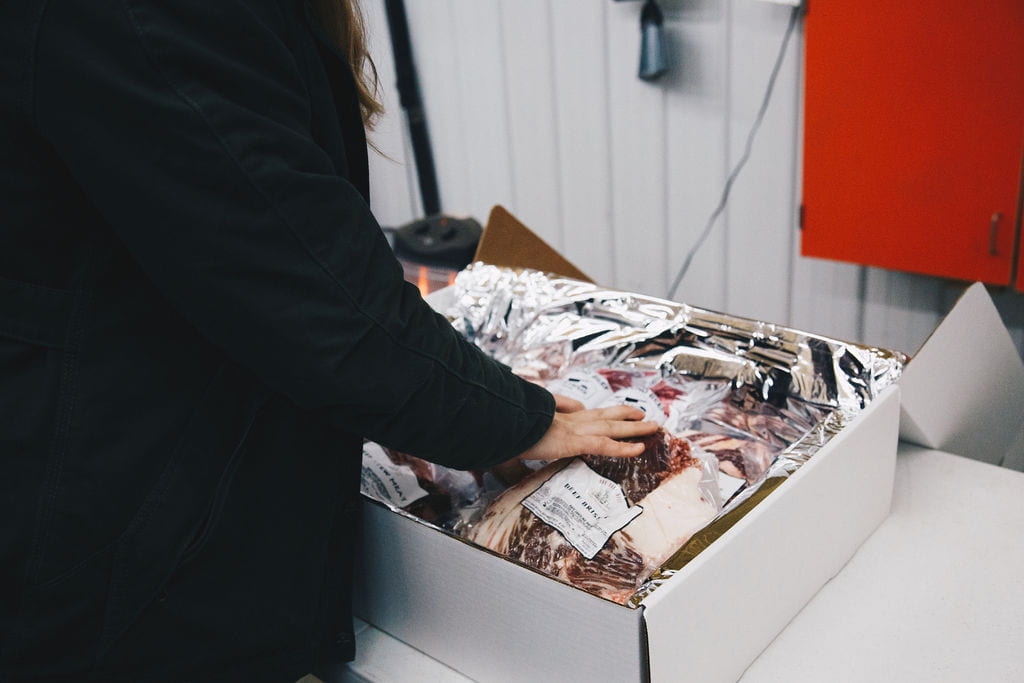The clock is ticking. The air is thick with tension. Adrenaline rushes through the audience. Suddenly, the auctioneer calls out, and the auction begins.
But what happens before this moment? What should be considered before the piece is even announced? United States Federal Regulations on auction houses may be sparse, but there are plenty of other regulations and legal considerations that should be accounted for prior to opening day. This post will focus on controlling federal regulations and other prominent legal concepts with which art auction entrepreneurs within the United States must comply.
primacy laws and regulations
Uniform Commercial Code (UCC)
The law considers art to be a “good.” Therefore, in basic legal terms, art auction houses are a means for people to sell goods to other individuals and the UCC regulates transactions for goods in the United States. Therefore, all art auction houses are subject to the UCC. There is no specific regulation for art auction houses; instead, all auction houses fall under UCC § 2-328. This section explains when a sale is made and what auctioning goods “with reserve” and “without reserve” should look like.
Local Laws and State Licensing
 Before you open your art auction house, be sure to know what specific regulations are in place on the state and local levels for auction houses. In New York City, there are over fifteen basic auctioneer laws and rules that must be observed if an auction takes place within the city limits. Some states have certain restrictions based on the type of good that is being sold in order to ensure fair transactions. For example, certain states only allow jewelry auctions to take place during daylight hours. This time restriction accommodates the jeweling industry because gems are best viewed in sunlight where their worth can be properly evaluated.
Before you open your art auction house, be sure to know what specific regulations are in place on the state and local levels for auction houses. In New York City, there are over fifteen basic auctioneer laws and rules that must be observed if an auction takes place within the city limits. Some states have certain restrictions based on the type of good that is being sold in order to ensure fair transactions. For example, certain states only allow jewelry auctions to take place during daylight hours. This time restriction accommodates the jeweling industry because gems are best viewed in sunlight where their worth can be properly evaluated.
It is also important to note that some states have licensing or operating requirements. For instance, the Pennsylvania State Board of Auctioneer Examiners maintains a public licensing database of all potential positions and entities related to auctions. There are numerous positions and potential entities listed in this database, from the auction house company to an apprentice auctioneer working in the auction house, and all must abide by certain standards to be licensed.
Legal considerations
Contracts
A contract is essential. Each and every piece that goes through an auction house should be mentioned in or have its own contract. Contracts establish everything, including but not limited to the right to sell the object at issue, commission, and who gets paid and how much they will receive. An attorney will be able to draft a contract according to your specifications and your needs, but all contracts will need to cover the basics: the parties, the price, and the piece being auctioned.
A contract will also cover any relevant requirements established by the Statute of Frauds. The Statute of Frauds is a legal concept that establishes additional protection for all parties and requires a contract if the end price of a “good” is over $500. Ideally, if your auction house is successful and your auctioneers are well-trained, the end price of the artwork will be over $500. If this occurs, having a contract in place is not only required but will also help lessen your risk.
Due Diligence
Despite the sophistication of the market, there is a surprising lack of regulation and recordkeeping monitoring the authenticity of artworks and ownership. This has become a great concern for art auction houses. Large auction houses, including Sotheby’s and Christie’s, have teams of experts on hand to research and authenticate the pieces in question. Even so, they prefer holding a certificate of authenticity prior to putting a piece on their floor.
 A certificate of authenticity is a record of information about the artwork. It lists the artist, the name of the artwork, dimensions of the work, the year it was created, and more. This certificate grants an express warranty that the piece is authentic. This means that the buyer can bring a legal action under § 2-313 of the UCC if the piece has a fraudulent certificate of authenticity issued. Today, many buyers expect a certificate of authenticity to accompany artwork. It is increasingly expected that the auction house performs its due diligence to verify that the work is legitimate and issue a certificate of authenticity when necessary. If you are issuing certificates of authenticity, you should notify your attorney and keep thorough records of certificates issued.
A certificate of authenticity is a record of information about the artwork. It lists the artist, the name of the artwork, dimensions of the work, the year it was created, and more. This certificate grants an express warranty that the piece is authentic. This means that the buyer can bring a legal action under § 2-313 of the UCC if the piece has a fraudulent certificate of authenticity issued. Today, many buyers expect a certificate of authenticity to accompany artwork. It is increasingly expected that the auction house performs its due diligence to verify that the work is legitimate and issue a certificate of authenticity when necessary. If you are issuing certificates of authenticity, you should notify your attorney and keep thorough records of certificates issued.
Fiduciary Duties
If you are opening an art auction house, you will owe both the seller and the buyer certain responsibilities called fiduciary duties. These fiduciary duties go above and beyond that of a regular business relationship and require the auction house to act in the best interest of both the seller and the buyer. This duty can become incredibly difficult, as the sellers want a high price and the buyers want a low price. A successful auction house will keep the auctioning process as uniform as possible, no matter what the piece is or who is bidding, and should consult an attorney to ensure that current business practices fall within industry norms. For instance, posting prices is not an industry norm and discreet chandelier bidding (planting auction house bidders in the audience to warm the room and get people bidding) is not as discouraged as you may expect.
other considerations
If you do find your auction business growing or you want to work in the international market, it would be best to speak with an attorney. Laws vary from country to country regarding the exchange of art, and each international transaction must follow the laws that correspond with the proper countries’ laws and international treaties.
Though these laws and regulations may sound overwhelming, a good attorney will help you navigate them all. The more you can focus on your business and the artworks themselves, the more you can enjoy the thrill of the auction.
This post was originally authored February 9, 2020, and can be found here.
Marisa Halm, at the time of this post, is a recent graduate of Penn State Dickinson Law. She is from a small town near Greensboro, North  Carolina, where small business is everyone’s business. Her parents were successful entrepreneurs and were always looking to start something new. As a result, Marisa saw ingenious business ideas fail and other “silly” concepts become surprisingly successful. When she started working at her county’s courthouse, new entrepreneurs would ask questions, file paperwork, and learn about available resources. Marisa has completed courses related to business entities, tax, company creations, and corporations. She will be working at a construction law firm in Philadephia.
Carolina, where small business is everyone’s business. Her parents were successful entrepreneurs and were always looking to start something new. As a result, Marisa saw ingenious business ideas fail and other “silly” concepts become surprisingly successful. When she started working at her county’s courthouse, new entrepreneurs would ask questions, file paperwork, and learn about available resources. Marisa has completed courses related to business entities, tax, company creations, and corporations. She will be working at a construction law firm in Philadephia.
Sources
https://auctionlaw.wordpress.com/2007/08/18/auction-laws-in-the-usa/
https://www.stimmel-law.com/en/articles/law-auctions
https://www.law.cornell.edu/ucc
http://artlawpodcast.com/2019/12/02/art-of-the-chase-inside-art-auctions-revisited/
https://www.pals.pa.gov/#/page/searc
Photo Credit









 Sarah Phillips, at the time of this blog post, is a third-year law student at Penn State’s Dickinson Law. She is from West Amwell, New Jersey and has interests in agricultural, land use and business transactional law. She is currently serving as an Honor Code Representative and a Law Lion Ambassador. Sarah is the Editor-in-Chief of the Dickinson Law Review.
Sarah Phillips, at the time of this blog post, is a third-year law student at Penn State’s Dickinson Law. She is from West Amwell, New Jersey and has interests in agricultural, land use and business transactional law. She is currently serving as an Honor Code Representative and a Law Lion Ambassador. Sarah is the Editor-in-Chief of the Dickinson Law Review.